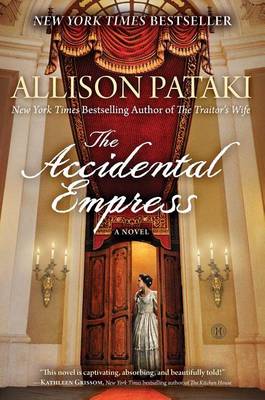
Amber (The Literary Phoenix)
Written on Nov 17, 2019
One of the first things I do with non-fiction is cross-check facts. Historical fiction is, of course, just that: fiction. But the best lies have a grain of truth at the center, so I wanted to see how well Pataki mixed fact and fiction. I’m pleased to say that many stark details of Sisi’s narrative are right out of historical fact. Empress Elizabeth left behind many journals, and it’s a historian’s dream to have ripe primary sources. I’m sure these journals and other primary and secondary sources influenced Pataki’s narrative. It was historical enough to feel real, and lyrical enough to be entertaining. Excellent writing, honestly.
It’s a very different historical fiction than I’m accustomed to, because of how much time I’ve spent reading about the Tudor Court. While there are still rumors and intrigue, the court gossip is in circles outside Sisi’s hearing, and I felt the novel was well-written to keep Sisi at the center, rather than to split the narrative between the empress and another. Elizabeth struggles with imposter’s syndrome as well as depression. Her story feels quiet, hidden between closed doors, and there is a lot of emotion in it. She’s a wonderfully written character that evolves and grows so easily and yet so subtly.
Then, of course, we have Sophie, the Arch-Duchess. I adored this character because I loved to hate her. Much like Sisi, I have a difficult mother-in-law, but nothing to this caliber. I did a little resource on Sophie as well (because the historian in me can’t not) and it was interesting to see how this character was also true to historical fact, but through the eyes of Sisi. If Sophie had been viewed through the perspective of any other character, she would have been very different.
I think the only thing I can criticize in this novel is the pacing. It flipped back and fort a bit, and there were scenes where the we were in the present as some sort of important event (revealed at the end as events caught up) and in the past. For a while, the narrative took on a meandering tone, and then it just… skipped forward. Four years. And while I understand the empress was away from court, I think I would have liked to hear about more? I’d forgive this if it was a standalone novel and Pataki wanted to focus only on Elizabeth’s ascent and contributions to Hungarian independence… but this is the first book in the duology and it would have been nice to at least get a sort of highlights sequence? But honestly, that’s all that rumpled my feathers.
I’d recommend The Accidental Empress for fans of historical fiction and who are interested in the Hapsburgs. I have to be honest and say I haven’t read a lot about this line of monarchs, and I’m not sure if my lack of knowledge played into how much I enjoyed it? But I did enjoy it and it was nice to read about a different regime.


